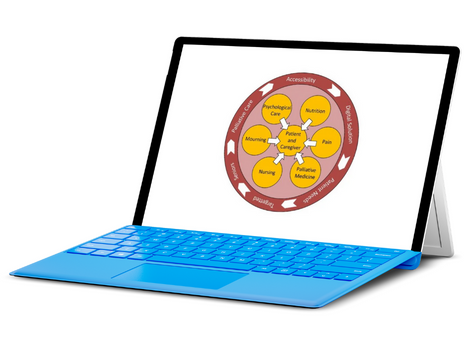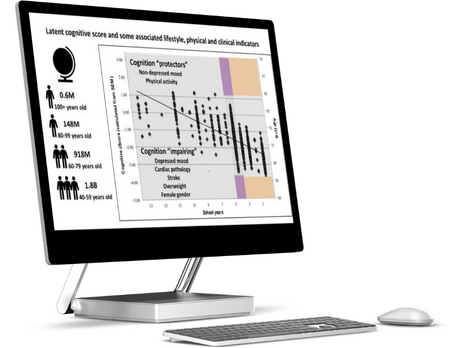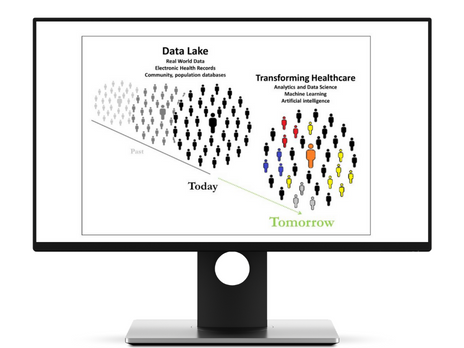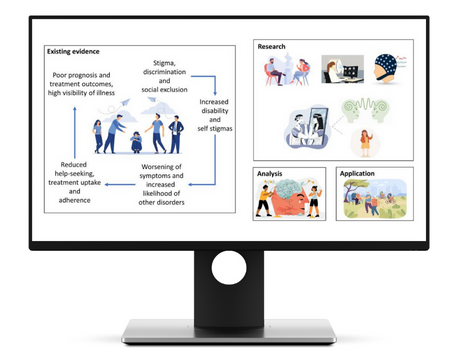Scientific Highlights
1. Santos NC (2024) Exploring Digital Exceptionalism in Healthcare: Navigating Trust, Efficacy, Equity and Potential Harms. Revista Medicina Interna (RPMI) [Internet] 31:2-3. doi: 10.24950/rspmi.2583
2. Quialheiro A, Miranda A, Garcia Jr M, Carvalho ACd, Costa P, Correia-Neves M, Santos NC (2023) Promoting Digital Proficiency and Health Literacy in Middle-aged and Older Adults Through Mobile Devices With the Workshops for Online Technological Inclusion (OITO) Project: Experimental Study. JMIR Form Res 7:e41873. doi: 10.2196/41873
3. Rodrigues B, Portugal-Nunes C, Magalhães R, Schmidt L, Moreira PS, Soares JM, Castanho TC, Marques P, Sousa N, Santos NC (2023) Larger dlPFC and vmPFC grey matter volumes are associated with high adherence to the Mediterranean diet: A cross-sectional study in older adults. Aging Brain 3:100064. doi: 10.1016/j.nbas.2023.100064
4. Domingos C, Picó-Pérez M, Magalhães R, Moreira M, Sousa N, Pêgo JM, Santos NC (2021) Free-living physical activity measured with a wearable device is associated with larger hippocampus volume and greater functional connectivity in healthy older adults: an observational, cross-sectional study in Northern Portugal. Front. Aging Neurosci. 13: 729060. doi: 10.3389/fnagi.2021.729060
5. Domingos C, Pêgo JM, Santos NC (2021) Effects of physical activity on brain function and structure in older adults: a systematic review. Behavioural Brain Research 402: 113061. doi: 10.1016/j.bbr.2020.113061
6. Rodrigues B, Asamane E, Magalhães R, Sousa N, Thompson J, Santos NC (2020) The association of dietary patterns with cognition through the lens of neuroimaging—a systematic review. Ageing Research Reviews 63(2020):101145. doi: 10.1016/j.arr.2020.101145
7. Rodrigues B, Coelho A, Portugal-Nunes C, Magalhães R, Moreira P, Castanho TC, Amorim L, Marques P, Soares JM, Sousa N, Santos NC (2020) Higher adherence to the Mediterranean diet is associated with preserved white matter integrity and altered structural connectivity. Frontiers in Neuroscience 14:786. doi: 10.3389/fnins.2020.00786
8. Castanho TC, Amorim L, Zihl J, Palha JA, Sousa N, Santos NC (2014) Telephone-based screening tools for mild cognitive impairment and dementia in aging studies: a review of validated instruments. Frontiers in Aging Neuroscience 6:16. doi: 10.3389/fnagi.2014.00016
9. Santos NC*, Costa PS, Cunha P, Portugal-Nunes C, Amorim L, Cotter J, Cerqueira JJ, Palha JA and Sousa N (2014) Clinical, physical and lifestyle indicators and relationship with cognition and mood in ageing: a cross-sectional analysis of distinct educational groups. Frontiers in Aging Neuroscience 6:21. doi: 10.3389/fnagi.2014.00021
10. Santos NC*, Costa PS, Cunha P, Cotter J, Sampaio A, Zihl J, Almeida O, Cerqueira JJ, Palha JA, Sousa N (2013) Mood is a key determinant of cognitive performance in community-dwelling older adults: a cross-sectional analysis. Age (Dordr) 35:1983-1993. doi: 10.1007/s11357-012-9482-y

















